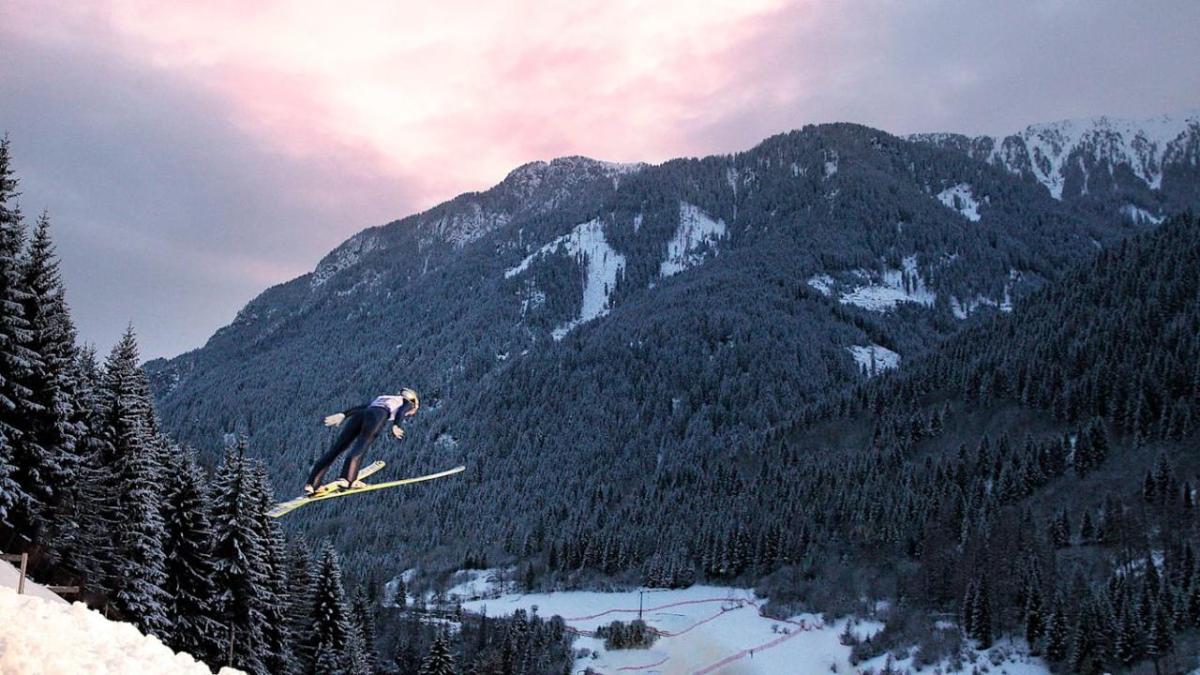100 Years of Olympic Winter Games: The Evolution – Reinventing the Present, Adapting to the Future
Jan 23, 2024 9:10 AM ET
International Olympic Committee news
Next week marks 100 years since the first Olympic Winter Games took place in Chamonix, France. Ahead of the anniversary, we think about how their future might look in the face of accelerating climate change.
With the reforms of Olympic Agenda 2020 and Olympic Agenda 2020+5, the IOC has been reinventing the Olympic Games and the Olympic Winter Games to make them more inspiring, relevant and, above all, sustainable, reducing their footprint and creating lasting benefits for host communities.
- Today, the Games must adapt to the hosts, and not the other way around. The IOC encourages sustainable and flexible Games proposals which fit with long-term development plans for the local region and country.
- Hosts should aim to use only existing or temporary venues, and can also move events outside the host city, region or country if appropriate for sustainability reasons. Any new construction must be planned with long-term legacy in mind.
- Sustainability must be part of the DNA of any hosting project. Games organisers must commit to tackling climate change, protect biodiversity and manage resources sustainably.
- From 2030 onwards, Games organisers will be obliged to minimise direct and indirect Games-related carbon emissions, strive to remove more carbon from the atmosphere than the Games project emits, and use their influence to encourage stakeholders to take climate action.
- Proposed snow competition venues should be climate reliable.
Reflecting on the future
As climate change impacts increase, the IOC is leading the way – through research, reflection and innovation – to shape the future of winter sport.
- In 2019 the IOC established two Future Host Commissions, for Summer and Winter editions of the Olympic Games, to monitor and encourage interest in Olympic hosting; and to explore future opportunities and challenges, to ensure resilience for the Olympic Movement and sport. Both Commissions are studying the current and potential future impact of climate change on the organisation of sports events and report to the IOC Executive Board (EB).
- Recent research led by the Future Host Commission for the Olympic Winter Games found that:
- There are currently 15 NOCs on three continents that already have at least 80 per cent of the venues needed for the Olympic Winter Games.
- By mid-century, two of these 15 NOCs will no longer have the necessary reliability for the Olympic Winter Games to be held in February, and five will not for the Paralympic Winter Games to be held in March, which means a pool of potential hosts reduced to around 10 or 13 NOCs.
- While this number will likely be further reduced by the end of the century due to the impact of climate change, under a mid-emissions scenario potential Olympic Winter Games hosts will exist until the late 21st century.
- The IOC Session responded to these findings by approving the principle of a double allocation for the Olympic Winter Games 2030 and 2034 by the IOC Members, should the appropriate conditions exist.
- In November 2023, the IOC EB opened Targeted Dialogues with the French National Olympic Committee (CNOSF) and the US Olympic and Paralympic Committee (USOPC), to explore their potential to host the Olympic Winter Games 2030 in the French Alps, and the Olympic Winter Games 2034 in Salt Lake City-Utah.
- The aim is to elect the hosts for both editions at the 142ndIOC Session in Paris in July 2024, to bring security for the Olympic Movement in solid traditional winter sport and climate-reliable hosts until 2034, while allowing the IOC time to reflect on the long-term future of the Winter Games, including various ideas around the economic and event delivery model.
- The Future Host Commission will report back to the EB on its strategic reflections. Topics under investigation could include: the notion of rotating the Winter Games within a pool of hosts; innovations and new technologies; co-hosting ice and snow events between different regions; and decentralising the organisation of the Olympic Winter Games to outsource certain competitions to experienced international and national event organisers who run world cups and world championships.



